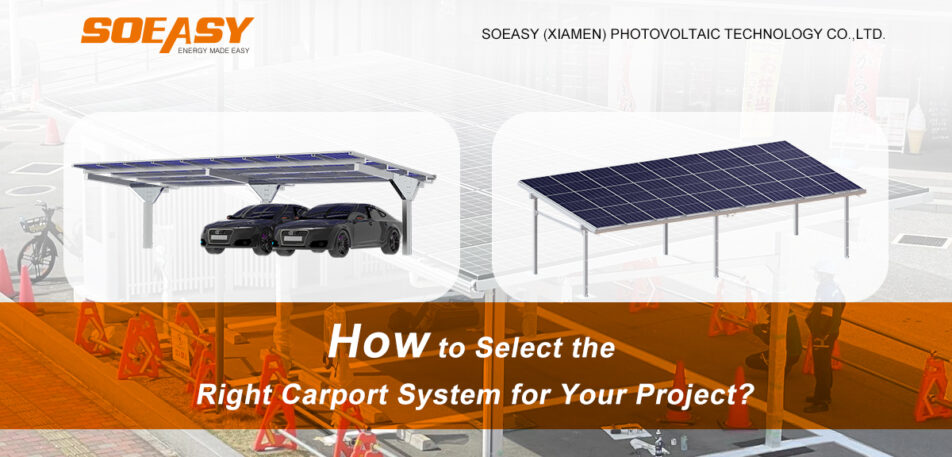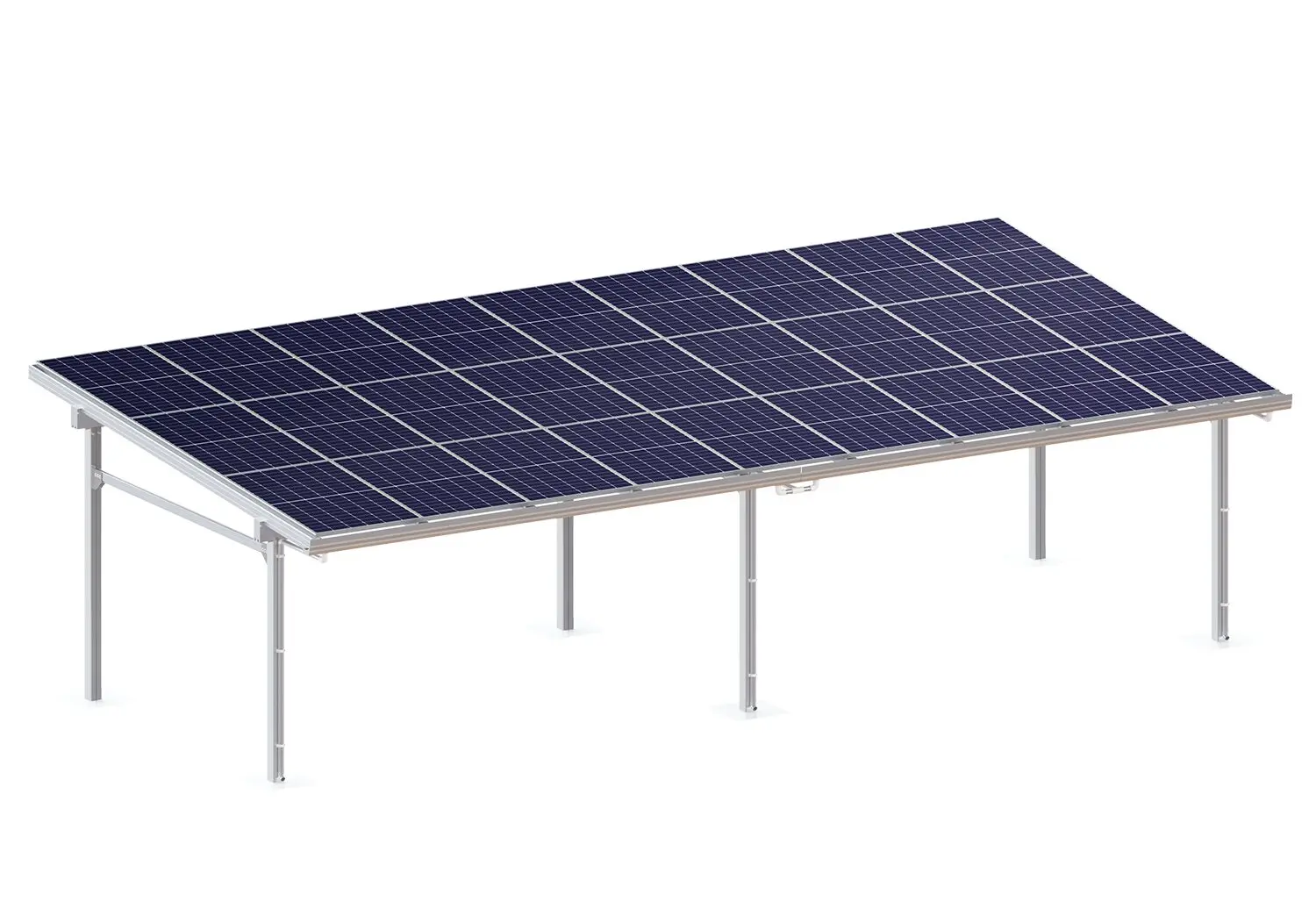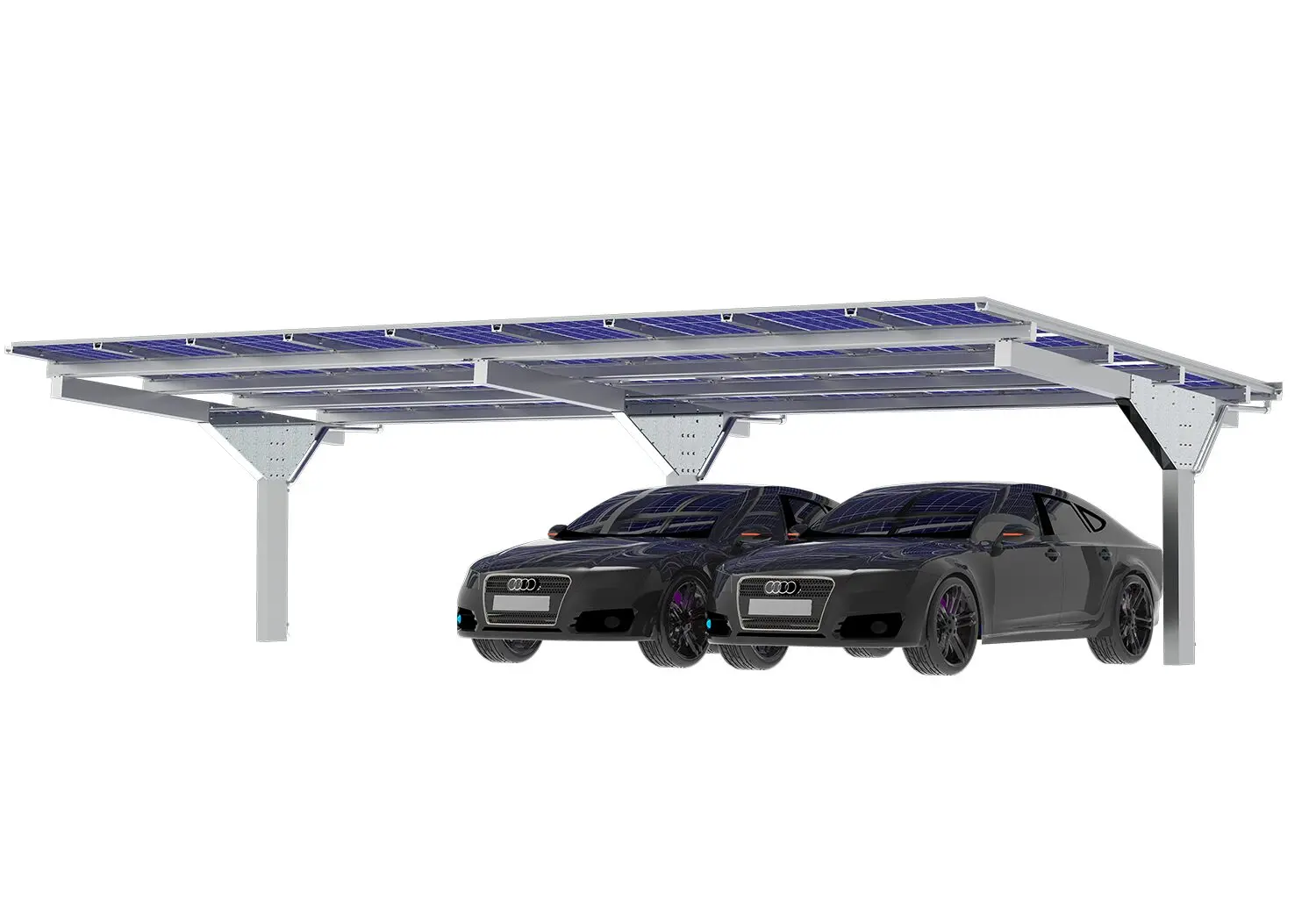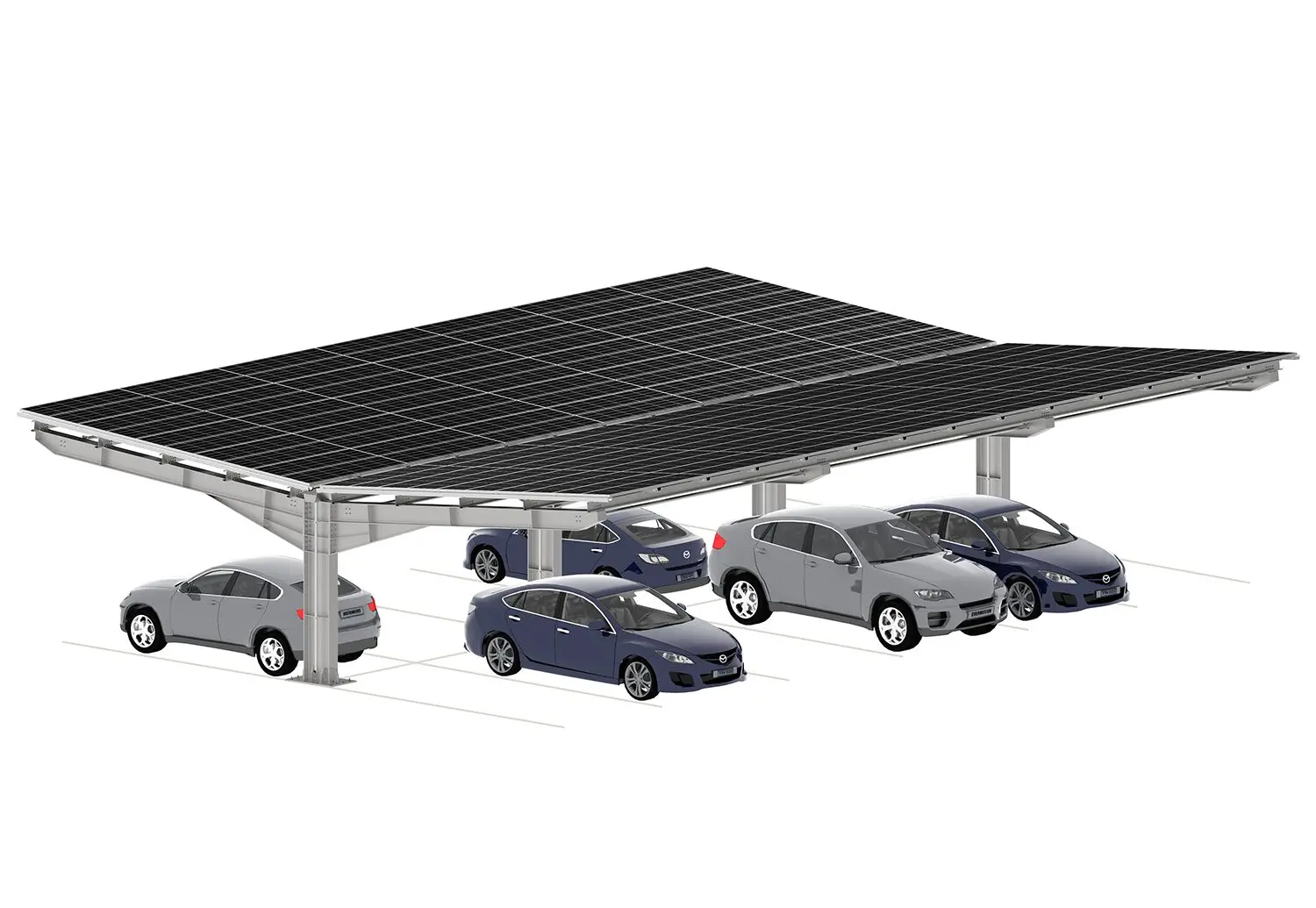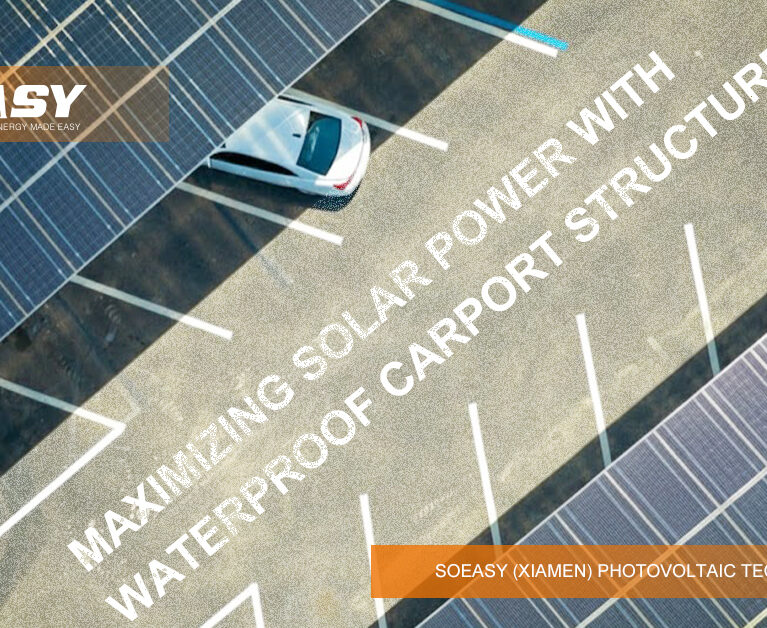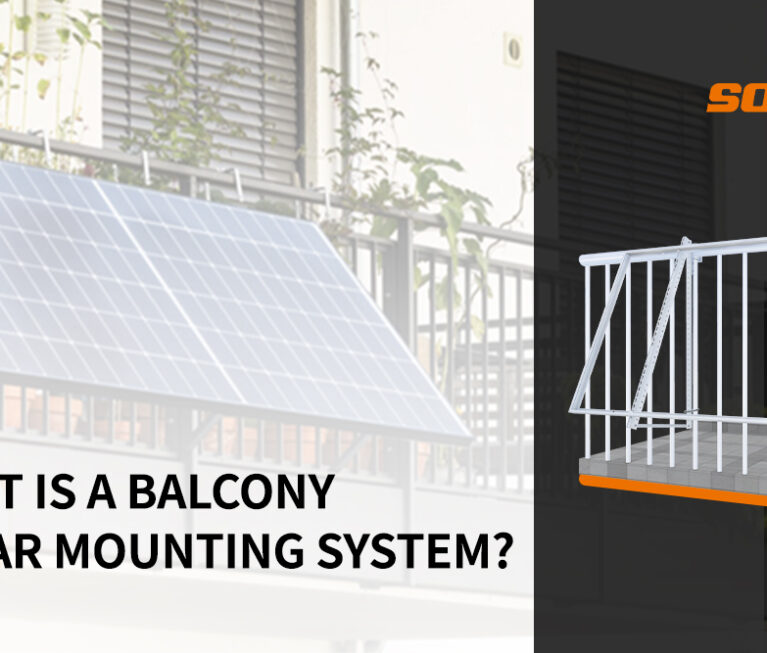As land resources become increasingly scarce and the demand for clean energy continues to rise, solar carports are emerging as an ideal choice for businesses and institutions seeking both energy savings and added value. A carport solar system not only generates renewable electricity to lower energy bills but also provides shade and protection for vehicles. By combining energy production with efficient land use, it offers greater flexibility and commercial value compared to traditional rooftop or ground-mounted solar systems.
The working principle is simple: photovoltaic modules are installed on the carport roof to convert sunlight into clean electricity. This energy can be used for self-consumption or fed into the grid for financial return. Today, solar carports are increasingly seen in business centers, industrial parks, hospitals, schools, and residential communities as part of the green transition.
In this article, SOEASY Solar will analyze the advantages and challenges of solar carports and share key factors to consider when selecting the right solution.
Advantages of Solar Carports
- Efficient land use – Solar carports maximize existing parking areas without requiring additional land. This dual-purpose approach is especially valuable in urban environments where space is limited.
- Vehicle protection – Beyond power generation, solar carport mounting system provides shade and shelter, reducing heat exposure, UV damage, and weather-related wear.
- Flexible design – Structures can be customized to project needs, whether single-row, double-row, or cantilevered. Waterproof designs further enhance usability by protecting against rain and snow.
- Aesthetic and commercial value – A solar carport can improve the appearance of business complexes, campuses, or industrial sites, enhancing brand image and attracting tenants or customers.
- Energy integration – Carports can be combined with EV charging stations and storage systems, supporting clean transportation.
- Long-term ROI – While upfront costs are higher, savings on electricity bills, government incentives, and added property value provide lasting financial benefits.
Disadvantages of Solar Carports
- High upfront investment — Compared to rooftop systems of the same capacity, solar carports require more structural materials and foundation work, resulting in higher initial costs.
- Engineering challenges in harsh climates — In areas prone to heavy snow, strong winds, or earthquakes, additional reinforcement is necessary, which increases costs.
- Space limitations — Solar carports are best suited for large, open parking lots. Smaller areas may face a higher cost per kilowatt compared to rooftop installations.
- Permits and regulations — In some regions, constructing a solar carport may require extra approvals. It is recommended to understand and comply with local building codes in advance to avoid project delays.
Key Factors When Choosing a Solar Carport
1. Structural Materials
The choice of material impacts durability and long-term performance.
- Aluminum – Lightweight and corrosion-resistant, aluminum is easier to install and ideal for coastal or humid environments. Its drawbacks include higher cost and slightly lower strength compared to steel.
- Steel – High strength and robust, steel is suitable for heavy-duty structures or large-scale projects and is relatively cost-effective. Its main disadvantage is lower corrosion resistance, which can be improved with hot-dip galvanizing or protective coatings to extend its lifespan.
2. Types of Solar Carports
- Cantilevered carports – Supported on one side only, offering a clean, modern look and improved space utilization. Vehicles can enter and exit more easily.
- Single-row or double-row carports – Single-row is cost-effective for residential or small businesses. Double-row (often Y-shaped) accommodates more modules per area, increasing energy output and wind resistance, making it suitable for large-scale facilities.
- Waterproof carports – Designed with integrated drainage systems, offering rain and snow protection along with energy generation.
3. Size and Vehicle Compatibility
- Height: 2.5–3 m for standard cars, 3–3.5 m for SUVs/mid-size vehicles, and ≥4 m for fire lanes or special use.
- Span and width: Single-span typically ranges from 6–12 m. Double-row carports should be 6–7 m wide to allow comfortable parking and door clearance.
4. Site Conditions and Load Requirements
- Climate: Choose designs optimized for sunlight, rain, or snow conditions.
- Foundation: Options include concrete, ground screws, or piles depending on soil type.
- Wind and snow load: Must meet local engineering standards (e.g., designed for 50-year maximum wind/snow events).
- Tilt angle: Adjustable tilt (5–15° south-facing) improves drainage and energy generation.
5. Aesthetics and ROI
Beyond functionality, photovoltaic carports enhance the visual appeal of commercial sites. Shopping centers, campuses, and industrial parks often use them as both an energy solution and an architectural feature. ROI depends on installation efficiency, energy output, and operating cost savings.
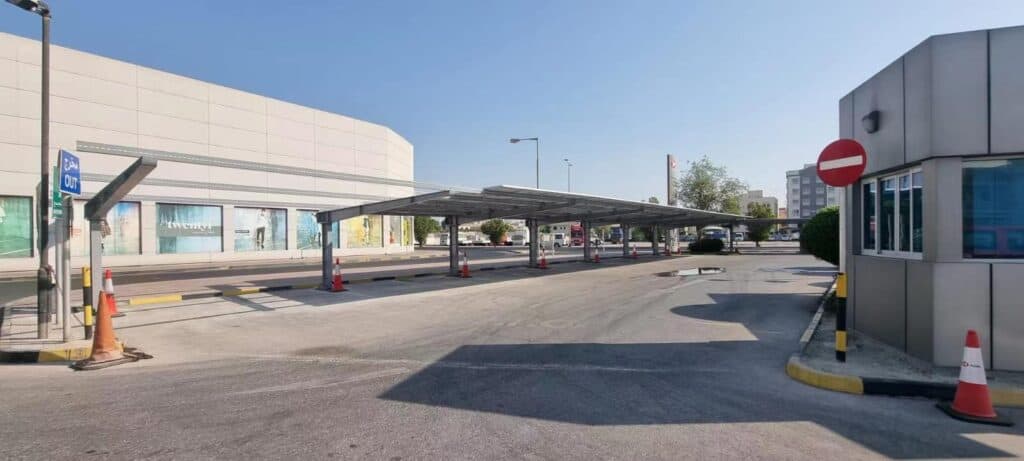
Residential vs. Commercial Solar Carports
- Residential solar carports: Ideal for homeowners without suitable rooftops. They typically cover one or two parking spaces and can integrate with EV charging, lowering utility costs while promoting energy independence.
- Commercial solar carports: Large-scale structures designed for schools, shopping centers, or industrial facilities. They can cover dozens or even hundreds of parking spots, turning unused areas into energy assets. Features such as waterproofing, cable management, and EV charging make them both functional and financially rewarding.
Why Work with a Professional Manufacturer?
Partnering with an experienced manufacturer ensures project success from design to installation. Benefits include:
- Tailored solutions based on site conditions and project goals.
- Certified quality backed by global case studies.
- End-to-end support, from engineering design and material supply to installation guidance and after-sales service.
With 17 years of solar industry expertise, SOEASY Solar offers a wide range of carport solutions, including steel, aluminum, and waterproof structures. Our team provides 3D modeling, load calculations, bill of materials, installation manuals, and ongoing support. We can help you create a sustainable, profitable project that combines clean energy with long-term value.
 English
English 

